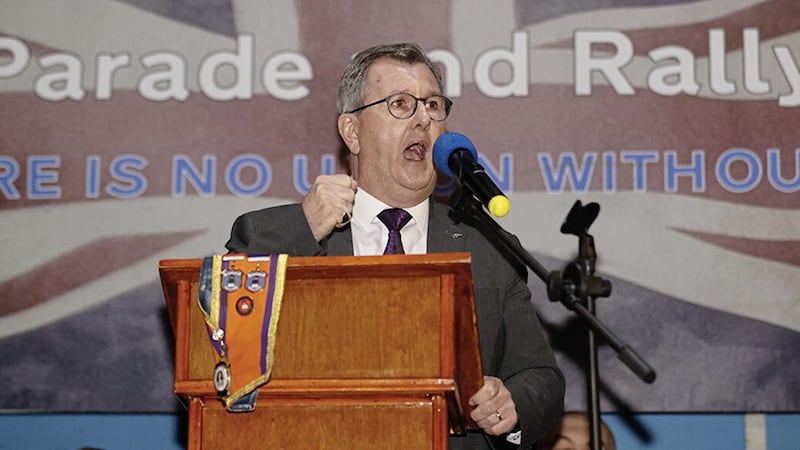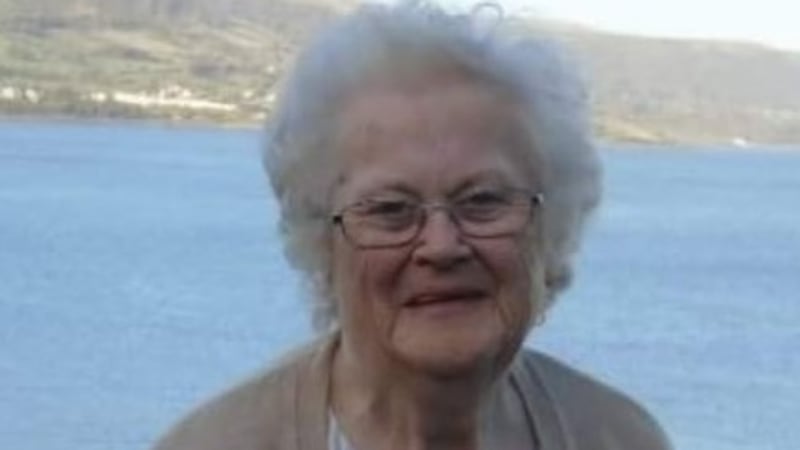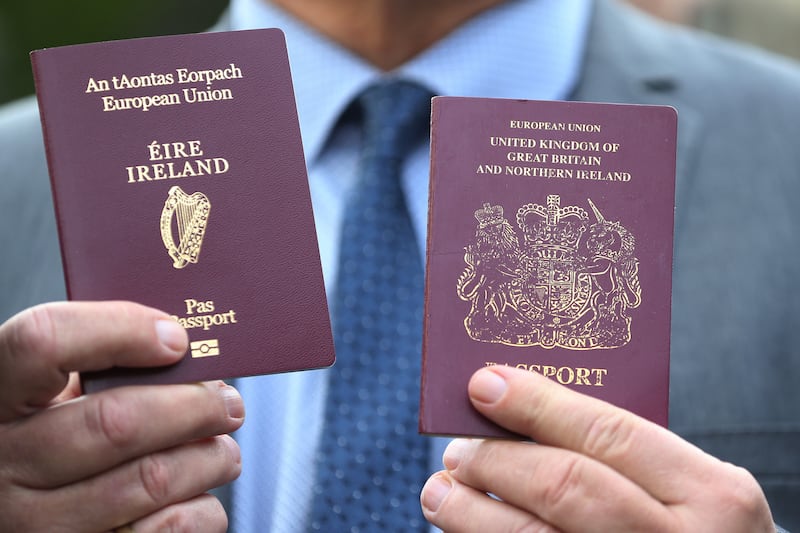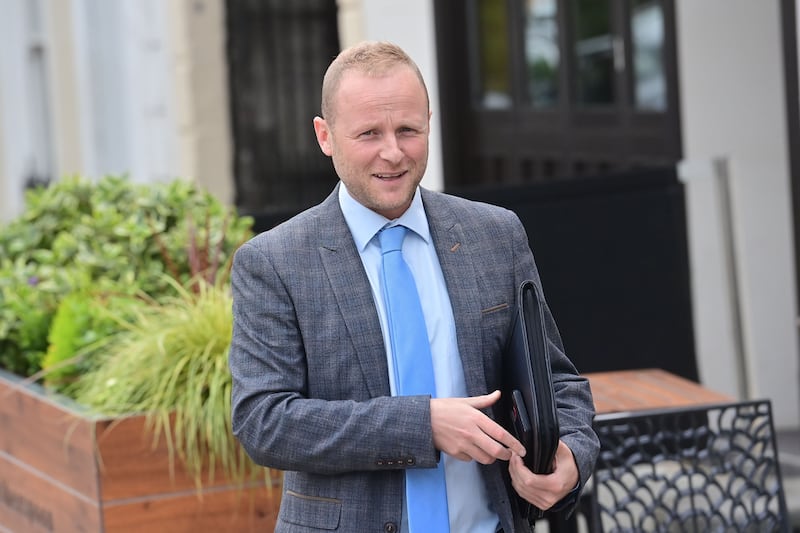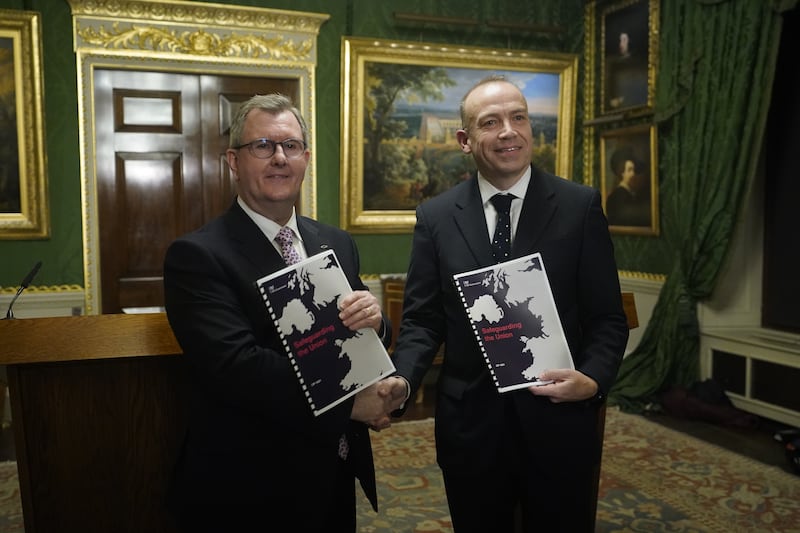AS the DUP gathers for its first conference since 2019 Political Correspondent John Manley senses a party retreating to the trenches.
IT’S been three years since the last DUP conference – an epoch in political terms. To recap, in October 2019 the party was led by Arlene Foster, Boris Johnson had become prime minister three months earlier and the Stormont institutions had been down for almost three years against the backdrop of a public inquiry into the Renewable Heat Incentive.
Yet the DUP was still the assembly’s largest party and its leader appeared to have ridden out the worst of the storm around the potentially fatal RHI scandal. Nevertheless, the subdued atmosphere at its last conference contrasted starkly with the previous year when BoJo, then a thorn in the side of the Tory administration, was fêted by an audience high on hubris.
The party’s inner turmoil in the intervening period was unprecedented, a response in part to outside events but much of the mess was of its own doing. For 50 years the DUP was adept at suppressing internal unrest, so when the levy finally broke it did so in spectacular fashion.
Sir Jeffrey Donaldson has arguably kept a lid on the divisions that many believe still linger from the 2021 coup that ousted Mrs Foster and saw Edwin Poots installed as leader for a record-breaking tenure that lasted barely a month.
External challenges have ostensibly helped unite the party but typically its response has been knee-jerk rather than strategic.
Effectively allowing Jim Allister to set the bar by which concessions to unionists around the Northern Ireland Protocol are measured means a climbdown from Sir Jeffrey appears inevitable.
The alternative, set out by Edwin Poots earlier this week with his remarks about the “funeral of the Good Friday Agreement”, would entail an abandonment of the devolution project and an eschewing of parliamentary politics, at Stormont at least.
While such an outcome would result in dozens of P45s for its representatives and associated staff, this direction of travel has been apparent since Sir Jeffrey took the helm and immediately joined the anti-protocol street protests, a harking back to the days when the tub thumping Ian Paisley would lead a crowd of flag-waving loyalists to the top of the hill.
It's an approach that undoes much of the work of Peter Robinson, who succeeded in making the DUP the party of the unionist establishment. But then the political landscape has transformed since the former East Belfast MP, now advising his former colleagues, was first minister and his spads were 'running rings' around their Sinn Féin counterparts.
The DUP clearly has concerns about the protocol but the party is also unaccustomed to unionists being numerically outnumbered, having spent just two years in government since 2017, when unionism lost its assembly majority, most of which was during the height of the Covid pandemic.
The DUP has yet to prove convincingly that is happy to serve alongside Michelle O'Neill as first minister and while publicly the party will dismiss talk of a border poll, their demeanour indicates otherwise.
Meanwhile, as widely predicted, the Tories are readying themselves to hurl their former friends under an approaching bus for the second time, as the idiocy of international isolation and a potential trade war finally dawns on them.
Sir Jeffrey and his colleagues find themselves at a fork in the road, where they must choose either the pragmatic route that involves compromise and some ownership of their self-inflicted hames or continue on the hardline path of diminishing returns.
'From Protest to Power' is the title Professor Jon Tonge and his colleagues gave to their 2014 book on the DUP yet recent developments suggest the party is moving in the opposite direction, reverting to its old disruptive self.
